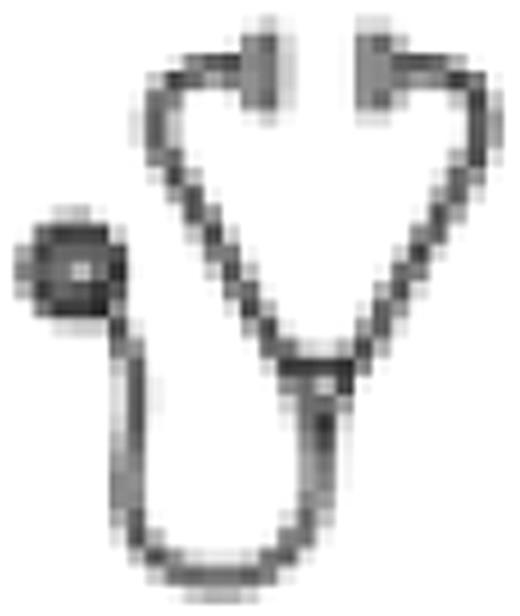Abstract
Poster Board I-773
Patients with MDS, especially those with a lower-risk type of disease, are prone to develop iron overload, partly due to increased duodenal iron resorption triggered by ineffective erythropoiesis, but mainly as a consequence of chronic transfusion therapy. Transfusion dependency is clearly associated with a decreased likelyhood of survival. It is less clear how far that association is attributable to the severity of the underlying bone marrow disease as opposed to toxic effects of iron overload. A large retrospective study from Spain recently showed that iron overload (serum ferritin >1000 ng/μl) was a significant prognostic factor for overall survival and leukemia-free survival. On multivariate analysis, the impact of iron overload was independent of transfusion requirement. If iron overload itself has an adverse effect on survival, iron chelation (IC) should do the opposite. This was indeed suggested by a partly retrospective and partly prospective observational study from France which showed a strong survival benefit from chelation therapy in patients with lower-risk MDS. We gathered that short of a prospective phase III trial, a retrospective matched-pair analysis might provide the best available data to identify a survival effect of iron chelation therapy in MDS.
Our matched-pair analysis included 93 patients with various types of MDS undergoing long-term chelation therapy, for whom we were able to identify 93 matched partners in the Düsseldorf MDS Registry (n=3552) who received supportive care only (SC, excluding iron chelation). Pairs were matched according to age at diagnosis, gender, MDS type according to WHO classification, and IPSS score. All 186 patients had iron overload, defined as serum ferritin of at least 500ng μl. Patients were followed up until death or until June 30, 2009.
Median age was 63 yrs in the iron chelation group and 67 yrs in the supportive care group (p=n.s.). In both groups, the distribution among WHO types was as follows: 4 RA, 7 RARS, 41 RCMD, 22 MDS with del(5q), 8 RAEB I, 7 RAEB-II, 4 CMML-I. Both groups showed the following IPSS risk profile distribution: 37% low risk, 46% intermediate-I, 14% intermediate-II, and 3% high risk.
Median ferritin level in the chlelated group was 1954 (498-7580), median ferritin level in the non-chelated group was 945 (508-5800).
In the IC group, patients received the following chelators: deferoxamine (n=54), deferiprone (n=5), deferasirox (n=32), deferoxamine or followed by deferasirox (n=12), and deferoxamine plus deferiprone (n=4).
The mean duration of the iron chelation was 28 months for Deferasirox and 39 months for Deferoxamine.
Among patients receiving iron chelation therapy, 52% died in the observation period, as compared with 58% in the SC group. Median survival time in the IC group was 74 months vs. 49 months in the SC group (p=0.002). There was no significant difference regarding the risk of evolution into acute myeloid leukemia (AML). The cumulative risk of AML transformation between the IC group and the SC group was 10% vs. 12% two years after diagnosis, and 19% vs. 18% five years after diagnosis (p=0.73).
Our data support the idea that iron chelation therapy results in improved overall survival of MDS patients, mainly by reducing the risk of non-leukemic death. Since this was a retrospective analysis of registry data, we cannot determine exactly which clinical complications (e.g. cardiac events or infections) were diminished. This goal must be achieved by a well-designed prospective clinical trial. Our results do not seem to confirm that iron chelation therapy decreases the risk of leukemic transformation. However, such an effect may require elimination of labile plasma iron in order to suppress oxidative stress. LPI levels were not available in this retrospective matched-pair analysis but should be included in prospective studies.
Fox:Novartis: Consultancy, Honoraria, Participation in advisory boards in desferasirox trials, Speakers Bureau. Germing:Novartis: Honoraria, Research Funding, Speakers Bureau. Gattermann:Novartis: Honoraria, Participation in Advisory Boards on deferasirox clinical trials.

This icon denotes an abstract that is clinically relevant.
Author notes
Asterisk with author names denotes non-ASH members.

This feature is available to Subscribers Only
Sign In or Create an Account Close Modal